New Podcast Explores a Changing Pharmacy Profession
One of the newest Health Sciences podcasts has a little something for everyone, from pharmacist to layman, and the aspiring PharmD in between.
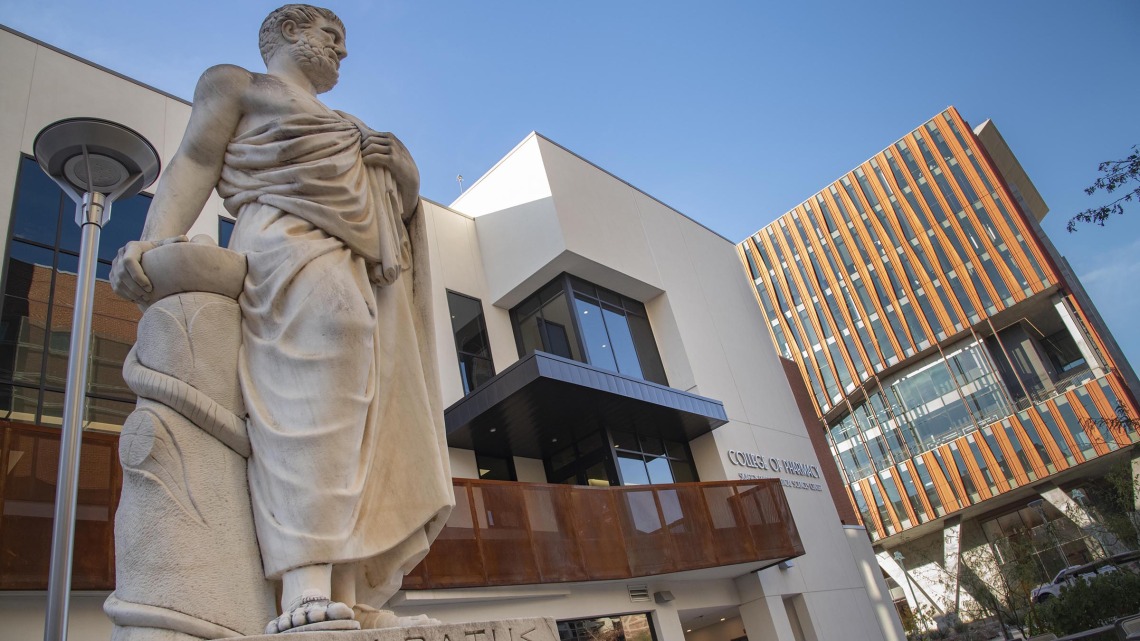
The College of Pharmacy’s new podcast is designed to appeal to potential students by connecting the profession with daily life.
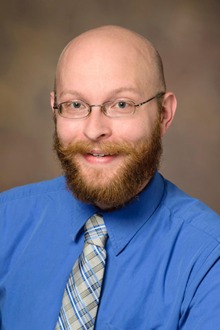
Chris Edwards, PharmD, BCPS, an assistant professor in the Department of Pharmacy Practice and Science
One of the newest podcasts being produced at the University of Arizona Health Sciences lifts the curtain on an integral profession that touches all of our lives. Since it started in August, the College of Pharmacy’s PharmCAST has explored a variety of topics, ranging from how the profession is adapting to COVID-19, to unusual wound treatments in use today, and even how a 1984 murder mystery shaped the profession.
The podcast is co-produced by Chris Edwards, PharmD, BCPS, an assistant professor in the Department of Pharmacy Practice and Science and a clinical pharmacy specialist in emergency medicine at Banner – University Medical Center Tucson, and Ali Bridges, director of communications for the college.
Together, they shape PharmCAST to bridge the gap between explaining science to the general public and appealing to a pharmaceutical professional. In doing so, they primarily hope to reach people who might fall between those two groups, such as potential pharmacy students.
Getting started
When Bridges set out to see what was already available for potential listeners, she found a couple of dozen podcasts about pharmacy, but about half were no longer in production.
Bridges said she saw the opportunity to own the narrative about pharmacy.
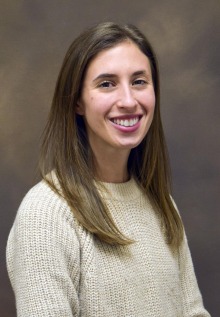
Ali Bridges, director of communications, College of Pharmacy
“It seemed like a really good medium to reach out to younger audiences, including students who were interested in this field but didn't quite know much about it,” Bridges said.
PharmCAST has so far seen more than 400 downloads, with 45 percent of the audience falling in the range of 23 to 27 years old.
“We want to show people that there are so many ways to get into health care. Pharmacy is one of them, and there are many different avenues within pharmacy.”
Dr. Edwards said PharmCAST also offers an opportunity to feature the work being done at the college that might otherwise be shared only at a single continuing education workshop or a special lecture.
Together, they want to spark a conversation for pharmacy professionals and those who are interested in the career without alienating a general audience.
“I think keeping the focus more global is what allows us to potentially reach a broader listenership that isn't currently being tapped very well by the existing offerings,” Dr. Edwards said.
What the show looks like
To produce an engaging show, Dr. Edwards and Bridges find ways to connect pharmacy to pop culture or other relatable subjects.
“We focus on how these topics specific to pharmacy will relate to the world as a whole or the world outside of pharmacy. I think having the diverse perspectives of the guests from the college and the industry really helps,” he said.
Examples of the episodes the team has produced so far:
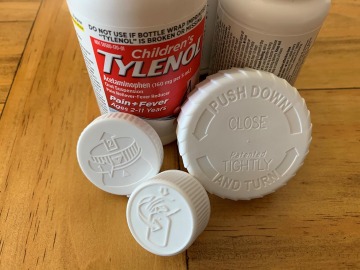
Safety lids were implemented for pharmaceuticals after Tylenol pills were poisoned in the early 1980s.
Macabre and modern: If you love science’s ability to surprise – and can stomach a mix of bugs and wounds – the Creepy Crawlies in Modern Medicine episode explores some of the unexpected, age-old remedies still used in pharmacy today to treat difficult wounds. The show explores several such treatments, from FDA-approved leeches and maggots, to medical-grade honey. There’s a lot to learn, and it’s worth the cringe to find out how pharmacists order, care for and dispense these and other “medical devices” from nature.
The Tylenol Murders: Your average education today doesn’t touch on the 1984 Tylenol poisoning saga unless, perhaps, you study consumer safety. Even the average pharmacist likely was not practicing at the time of the so-called Tylenol murders. Find out how the mystery of poisoned, over-the-counter pain medication unfolded and led to today’s consumer safety and pharmaceutical packaging standards in the Chicago Tylenol Murders episode.
Regulatory reform: The Road to Provider Status episode explores the next step in the evolution of the profession. The challenge of getting insurance companies to pay for all the services pharmacists provide is real, and guests point out how most pharmacists – especially small practices or rural pharmacists – do a lot more than dispense drugs and advise patients about those drugs. But, many insurance companies do not allow pharmacists to bill for all of their time and services.
COVID-19: The evolving knowledge of how to treat SARS-CoV-2 can be tough to keep up with. The Big, Ugly Pandemic in the Room episode explores the latest with a personal touch, as pharmacists struggle with applying what we know to the novel virus, and the University of Arizona Health Sciences grapples with continuing to educate the next generation of pharmacists during the pandemic.
Lessons learned
A number of other Health Sciences entities are creating podcasts (see below), and media industry research shows there is still room to reach the listening audience as podcast engagement continues to grow.
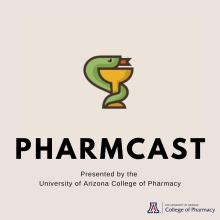
“The best piece of advice I can give to someone is to have some content ideas ready to go,” Bridges said. The pair began with a list of more than two dozen episode ideas, which has helped them keep up the momentum to release an episode about once a month.
Their other advice comes from the benefit of hindsight.
“I think if we could build a backlog, or if we could have started with a couple of episodes already in various stages of production, I think it would have been a little bit less stressful to keep on a schedule,” Dr. Edwards said.
Finally, Bridges and Dr. Edwards agree that it’s important to listen to a lot of podcasts if you’re interested in producing one. See below for a few ideas from Health Sciences colleagues.

